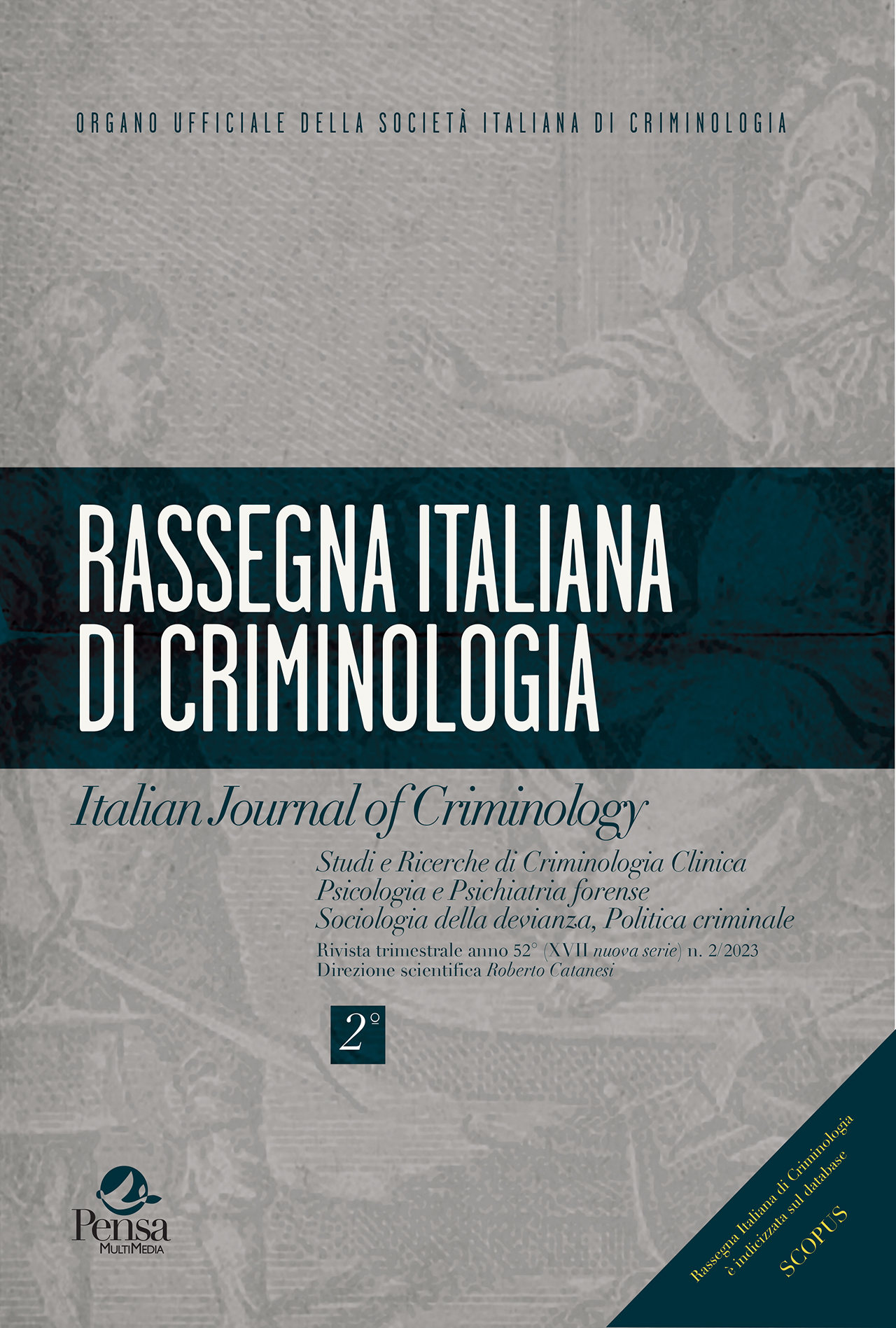Side effects. Ethnographic reflections on prescribed drug use in prison
DOI:
https://doi.org/10.7347/RIC-022023-p114Abstract
The issue of psychopharmacological consumption in Italian penal institutions has emerged in recent years as a particularly relevant topic. This article is based on the results of an ethnographic research conducted in three predominantly male prisons in a northern Italian region: the research made use of approximately 6 months of participant observation in the three institutions and 20 discursive interviews with healthcare workers in prison. The text aims to offer some considerations on the different uses and meanings that psy-chotropic drugs come to assume within the prison context. In particular, the article focuses on psycho-pharmacological consumption as a survival strategy with respect to an often empty and painful everyday life in prison. In this sense, psychopharmacological consumption can be seen as the reverse of treatment: the prescription and consumption of prescribed drugs are seen by prison staff and patients as a way of coping with an otherwise difficult experience. If in many cases the resort to psychotropic drugs is confi-gured as a purely situational solution to the vicissitudes affecting prisoners, while in other cases it is con-figured as a primary adaptation strategy to an environment experienced as hostile. It is in these terms that this choice refers back to Goffman's observations on the strategies of withdrawal from the situation as at-tempts to evade the mechanisms that characterise the ordinary functioning of the prison.





